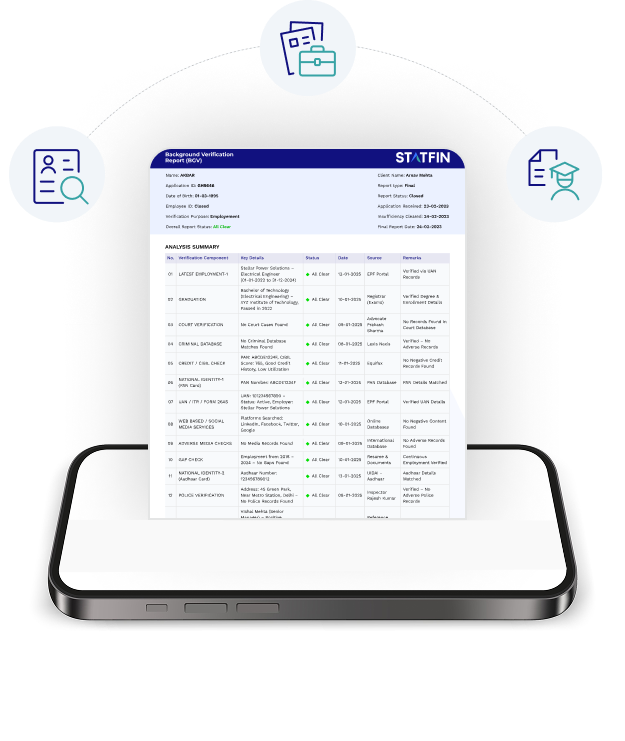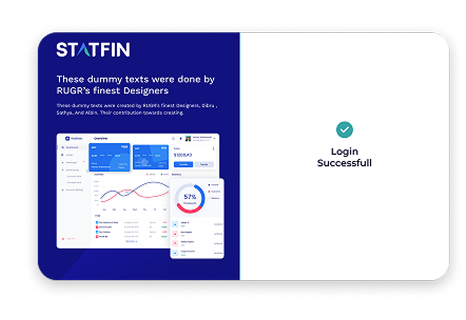Experience the Future of Risk-free Onboardings
-
Context-aware natural language search and discovery
-
Embark on a journey of data-driven decision-making
-
Single permission model for data + AI

Businesses have ensured that employees complying with BGV practices is a must and hence, BGV companies have employed high-tech verification measures to properly screen the data received. BGV often involves multiple layers of screening, validating against multiple authorized databases to ensure trust and compliance for easy onboarding.
Modern Screening Solution: Background Verification is a new-age tool to assess a person’s credibility for informed decision-making.
Beyond Employment: It extends beyond hiring, helping businesses verify individuals for various purposes.
Risk Assessment: Businesses use BGV to evaluate necessary details before granting access to their services.
Confident Onboarding: A thorough verification process ensures trust and security in onboarding new members.

Our background check is extensive, uncompromising and precise, which will not leave any space for discrepancies to arise in the future.


We largely ensure Transparency and Trust are maintained at all levels or throughout our services.


Regardless of the check or verification, we maintain our standards for each of its processes that perfectly align with a business’s onboarding goals.

Experience Real-time tracking like nowhere to move ahead faster in your business.


The integration of our APIs in the clients’ system enables them to send requests and receive reports seamlessly.

Obtain a complete list of checks required for a business.

.svg)

Gather necessary documents, sheets, or files for verification.

.svg)

Background Verification begins, and updates are shared with the clients.

.svg)

Each check follows a tailored workflow, sourcing secure and authorized databases.

.svg)

A final report is generated with clear findings, observations, and statistics.

.svg)
Background Verification is a process of verifying or assessing a person’s personal and official details for authenticity and trueness or credibility. The process is highly undertaken for employment purposes, such as securing partnerships or onboarding new users.